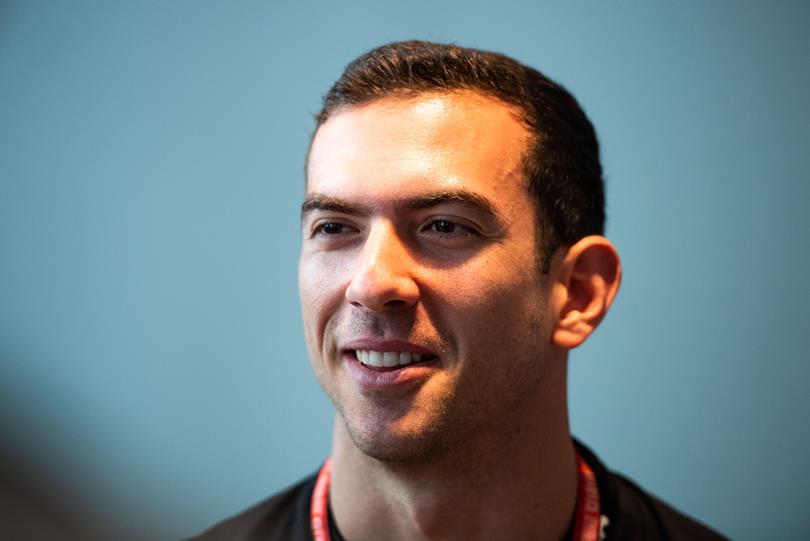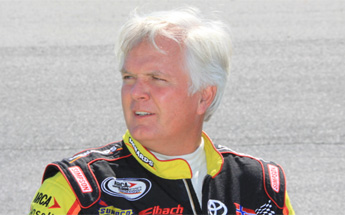Beginning in the 2020 NASCAR Gander RV & Outdoors Truck Series campaign, the Playoff field will be expanding from eight contenders to 10 possible contenders for the series championship.
The postseason races will remain at seven, with two drivers being eliminated after the first three races and an additional four drivers being eliminated after the next three races. The remaining four drivers will race for the title in the championship round at Phoenix.
While expanding the championship field is nothing new since the inception of the NASCAR postseason in 2004, there comes a point in time where it becomes a pointless action. Granted, NASCAR is aiming to bring excitement to all three of its national touring divisions, and the postseason has seen some exciting moments over the years. However, what’s the point in expanding the championship field when only a select few are true contenders and the rest will do nothing more than be placeholders?
Take the initial Chase for the NEXTEL Cup in 2004. It was a 10-driver field race set following the Richmond race in September, where they had 10 races to race for a championship. Of those 10, only four of them were viewed as true title contenders from the start (Kurt Busch, Jimmie Johnson, Jeff Gordon, Mark Martin). Those same four happened to be the ones who ultimately raced for the title at Homestead, with Busch taking home the trophy.
Meanwhile, drivers like Elliott Sadler, Ryan Newman, Matt Kenseth, and Jeremy Mayfield all won races in the regular season but did not make much of an impact in the Chase, as they faded from contention early with Newman finishing seventh, Kenseth eighth, Sadler ninth, and Mayfield 10th in the final standings.
For that matter, there’s the current Playoff system implemented in the top-three divisions, and for posterity’s sake, take a look at the 2019 Xfinity Series Playoffs. Of the 12 drivers, only three of them were absolute title contenders (Tyler Reddick, Cole Custer, and Christopher Bell). That left nine drivers, and while three of them were wild cards (Justin Allgaier went on to take the fourth slot at Miami, while Austin Cindric and Chase Briscoe both hung around the top-five in points), six other drivers (Brandon Jones, John Hunter Nemechek, Noah Gragson, Ryan Sieg, Justin Haley, and Michael Annett) stuck around by managing consistent runs with the occasional solitary win.
This may be an unpopular opinion, but a champion shouldn’t be decided by chance. If a driver dominates or is more consistent than anyone else in the regular season, they shouldn’t be knocked out of title contention by one bad race. If they dominate all year long and continue to post results in the postseason, then by rights, that driver should be the champion.
The 2003 Winston Cup season was actually a great season by that standard. Kenseth may have only won one race but he was more consistent than anyone else over the course of the season with 11 top-fives and 25 top-10s. He was the best driver all year long and that championship was earned.
Going back to the Xfinity Series championship fight of a year ago, the best three drivers fought for the championship, and Reddick earned his championship without question. The other drivers who made Playoff appearances worked just as hard as he did undoubtedly, but in the end, they weren’t on the level of Reddick, Custer, and Bell.
One notable Playoff field was the 2015 bunch, which included Jamie McMurray and Paul Menard. Both have won races and McMurray has won some of the crown jewel events in NASCAR, but they were just along for the ride compared to drivers like Joey Logano and Kenseth. That’s not saying their efforts weren’t good enough, but they just weren’t on the level the other teams were and their elimination in the first round was expected.
So what’s the point? Why expand the field when all that’s going to happen is a couple of guys who were just good enough to earn the ninth and 10th spots in the Playoff field are almost immediately eliminated because they weren’t on par with the other drivers in the Playoff field? If the team isn’t performing on a championship-caliber level, then they shouldn’t contend for a championship.
Some of the drivers on the bottom end of the Playoff field undoubtedly are having seasons other drivers would kill for and they shouldn’t be ashamed of that. But there’s a difference between strong and consistent and being a winner, and if they’re not making that jump then they’re not posting a championship-caliber effort. Full-stop.
Likewise, leave the championship contenders, the actual championship threats, to fight for the title without having to bother with other placeholders who aren’t really much of a threat for the title. That makes all the difference between a winner and a champion. Shouldn’t that be what the championship battle is about and rewards?









